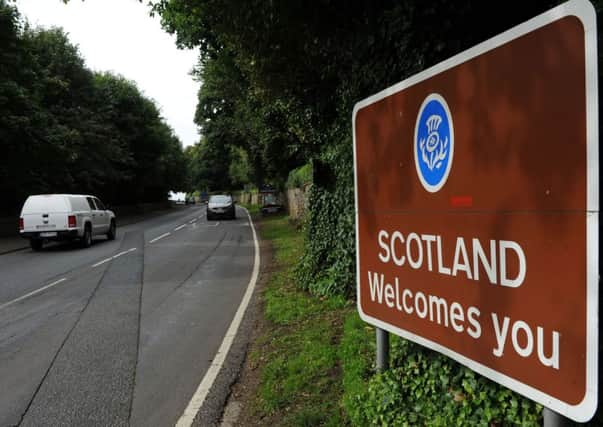Nobel prizewinner’s research fears after Yes vote


Sir Paul Nurse, who jointly won a Nobel prize in 2001, said the “wonderfully-innovative biomedical teams” working in Scotland rely on funds from UK organisations which may not support them in the event of a Yes vote.
The scientist also heads the £650 million Francis Crick Institute which supports 1,400 researchers and he has been invited to Scotland to talk about research funding next month by former prime minister Gordon Brown.
Advertisement
Hide AdAdvertisement
Hide AdSir Paul said: “It is by co-operating together that we achieve far more than we can ever achieve on our own.
“Scotland, with wonderfully-innovative biomedical teams engaged in path-breaking research, relies on money that comes from UK organisations such as the Medical Research Council, the Wellcome Trust and Cancer Research UK.
“My fear is that it will be difficult to justify using their money for research in an independent Scotland.
“This will be a major problem for Scotland and with progress in biomedical research, including the treatment of diseases such as cancer.”
Sir Paul was once a researcher at the University of Edinburgh and is now the president of the Royal Society.
He has specialised in the study of cell growth and division, and identified key molecules which control the cycle of cells, potentially paving the way for new cancer treatment.
The discovery led to him being named joint winner of the Nobel prize in Physiology or Medicine in 2001.
He was knighted in 1999 for services to cell biology and cancer research, and he has also received an honorary degree from the University of Strathclyde in Glasgow.
Advertisement
Hide AdAdvertisement
Hide AdMr Brown welcomed the scientist’s comments on the independence debate and pointed to figures which he said show Scotland attracts a higher portion of funding per head of population than the rest of the UK, with £12.40 per head in 2011 against a UK average of £8.25.
The former prime minister said: “Scotland could find itself outside the loop, cut off not just from UK funding of Scottish research but from UK-wide collaborative projects and consequently far less able to play what most Scottish people will want: the fullest part possible in the biggest push Europe has yet seen to find better ways of treating and curing diseases such as cancer.
“Path-breaking research in medicine is one of our great historic success stories.
“It recalls a time when Scotland produced one-third of the medical graduates of the UK and one sector of medical research dear to the heart of every family in the country is the fight to end cancer.”
The Scottish Government said current links over research would continue under independence.
A spokesman said: “Scotland has world class universities producing ground-breaking research, and that will continue in an independent Scotland.
“The UK currently operates as a ‘common research area.’ It is clearly in the interest of both Scotland and the rest of the UK to maintain this with independence - something in line with current international practice which sees extensive cross-border co-operation on research funding.
“Independence, and the full range of economic powers it will provide, offers even more opportunity for Scotland’s world class university research. Our significant investment in research will be protected and indeed could be incentivised to encourage greater collaboration between universities and the private sector, supporting productivity and sustainable economic growth.
Advertisement
Hide AdAdvertisement
Hide Ad“And only with independence can we guarantee an immigration policy that welcomes international students, talented researchers and leading academics from across the world in recognition of their potential and contribution to Scotland’s economy and society - as opposed to damaging Westminster policy.”
The pro-independence group, Academics for Yes, pointed to collaborations across the Irish border.
“Several bilateral arrangements exist between the UK and the Republic of Ireland,” a spokesman said.
“These include joint funding arrangements between the UK Arts and Humanities Research Council and the Irish Research Council for Humanities and Social Sciences, the merging of the postgraduate research councils of the Republic and Northern Ireland, and an agreement giving the universities of Ulster and Queen’s University Belfast access to the Republic’s scientific research funding scheme.
“Why would an independent Scotland be treated differently?”